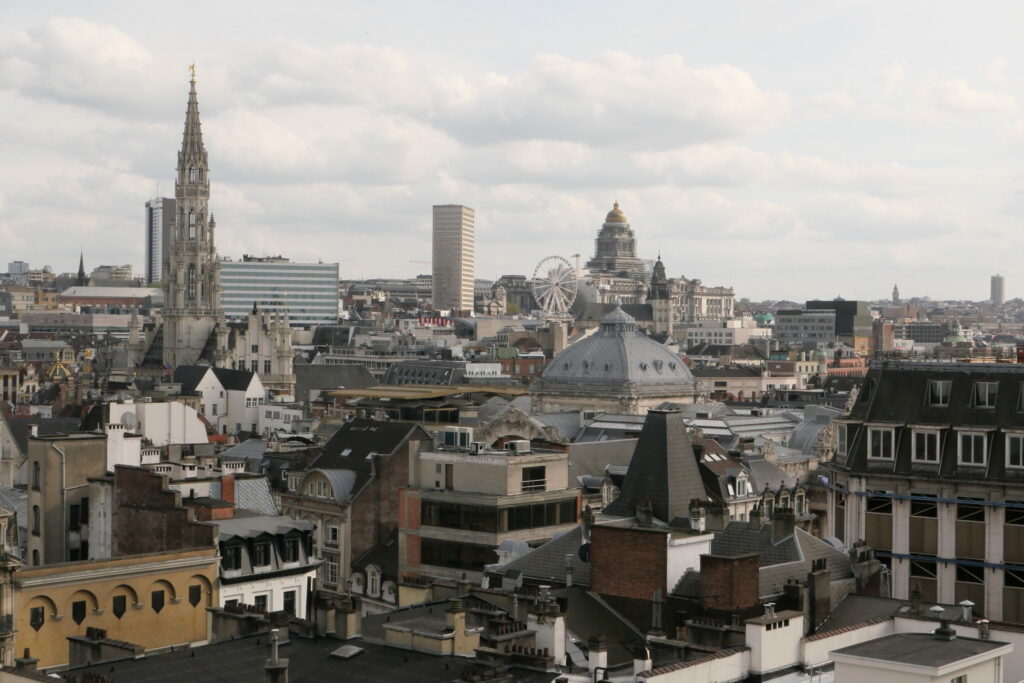The number of people moving from Wallonia and Flanders to Brussels grew significantly in 2023, but the net population of the Capital Region is falling as even more move away.
10,856 people moved from Flanders to Brussels last year – 600 more than in 2022 and the highest number since 2011, when the figure was around 7,500. Meanwhile the number of people moving from Wallonia to the Capital Region has remained close to 8,500 since 2022, annual figures from the Confederation of Real Estate Professionals (CIB) show.
"The fact that more Flemish people and Walloons are again moving to Brussels is a striking trend that we have recorded since the Covid-19 pandemic," said Kristophe Thijs, director of communications at the CIB.
By comparison, 2021 saw around 8,500 people move from Flanders to Brussels and just 7,200 from Wallonia. The desire for houses with a garden or terrace grew during the lockdowns and is the main explanation for the slow-down in people moving to Brussels.
But after the pandemic had passed, Thijs notes a clear turn in people moving to Brussels which continued in 2023. Research by BRIO, a Brussels research centre, found that most people moving to Brussels from Flanders cite a change in family situation: one in three are young people leaving their parental home and a quarter move to live with their partner. Two in five say they moved for work-related motivations.
Well over a third of people moving to the capital from Wallonia did so to study – hardly surprising given that Brussels is home to five universities and around 25 colleges. The average age in the Brussels-Capital Region is 37.7 years, much lower than the Flemish average (43) and Walloon average (41.7), according to 2021 figures from Statbel. Brussels' cultural offering also pulls people to the city.
Regional retreat
Despite the growing number of people moving into Brussels, the region's net population is falling as even more people leave. Last year, a total of 37,610 people moved away from Brussels to Wallonia and Flanders – far exceeding the 19,388 new residents in the city (-18,220).
"The Brussels Region wants to keep fiscally interesting profiles (households with two income earners) on its territory and has already adapted property taxation several times to achieve this," Thijs said. "But the policy doesn't seem to be working. The urban exodus continues."
The latest figures even show that the number of people leaving the Belgian capital is growing: "In 2011 that figure was 'only' 13,858."
Related News
- Brussels residents not satisfied with how city works, but nothing is changing yet
- From education to safety: What are Brussels' best neighbourhoods to live in?
The pandemic stirred the desire for more space and the number of people leaving the city rose significantly in 2021. This trend has persisted for three years with Flanders absorbing a greater proportion of those leaving the capital – possibly because all provinces surrounding the capital are Flemish. Around 23,700 people left Brussels to move to the Dutch-speaking region last year, up from 16,700 in 2011.
Nationwide almost 74,000 moves between the three regions were recorded. Almost half were people moving away from Brussels. Around 7,500 people moved from Flanders to Wallonia while around 9,500 went from Wallonia to Flanders.
"Real estate agents on the language border confirm that economic migration from Wallonia to Flanders is picking up," said Thijs. In turn, people moving from Flanders to Wallonia do so mainly to enjoy lower property prices.

